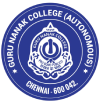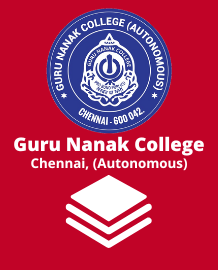Science - B.Sc. Chemistry
Programme Outcome (POs)
After completion of the Programme, the student will be able to
PO 1: Demonstrate ability to formulate most suitable mathematical problems for real-time occurrences
PO 2: Enhanced critical thinking, analytical and computational skills necessary in today’s society
PO 3: Develop the ability to understand, develop the mathematical concepts both numerically and graphically and enhance problem solving skills.
PO 4: Provide for professional cadres in the field of mathematics to support national development programs within public and higher education institutes.
PO 5: Build ability to contemplate latest scientific research techniques in the field
Programme Specific Outcomes (PSOs)
The students at the time of graduation will be able to
PSO 1: Students will possess subject knowledge and skills required for progression in terms of higher education in mathematical/ applied fields or professional cadres.
PSO 2: Students will develop the ability to think independently and be able to cater to the needs of the society in local and global levels.
Programme Outcomes (POs)
PO 1: Interpret the motion and behavior of matter through space and time, using related concepts.
PO 2: Establishes the “validity of Physical theories in a Scientific Method”.
PO 3: Develop a methodical approach to compare the implications of a theory with the conclusions drawn from its related experiments.
PO 4: Analyse the Observations to test the validity of a theory in a logical, unbiased, and repeatable way.
PO 5: Update the students to the need of the hour through Integrated electronics and Microprocessors and Microcontrollers.
Programme Specific Outcomes (PSOs)
The students at the time of graduation will be able to
PSO 1: Prepare the students for higher studies and Research through Numerical analysis and mathematical methods involved in physics.
PSO 2: Subject wisdom gained for multitasking that is required for facing challenges in the competitive world.
Programme Outcomes (POs)
After completion of the programme, the student will be able to
PO 1: Demonstrate the concepts and theories relating to the branches of chemical sciences such as organic, inorganic, physical and analytical chemistry.
PO 2: Utilize skills in problem solving, critical thinking, analytical reasoning in chemistry domain and use modern experimental techniques
PO 3: Develop a creative scientific mind to communicate effectively the scientific ideas and their impact on socio-economic issues and sensitize the need for a green environment
PO 4: Handle chemical materials safely by taking into account their physical and chemical properties including any specific hazards associated with their use.
PO 5: Apply the knowledge of chemistry to function effectively as an entrepreneur in chemical or related industries.
Programme Specific Outcomes (PSOs)
The students at the time of graduation will be able to
PSO 1: Establish their skill in planning and conducting chemistry experiments, enabling them to handle classes at the secondary level.
PSO 2: Develop a creative scientific presentation to the society based on the need and communicate effectively the scientific ideas and their impact on socio-economic issues.
Programme Outcomes (POs)
PO 1: Provide the needed statistical tools to experience interdisciplinary and cross disciplinary study and to discern the multi- disciplinary scope of biological science.
PO 2: Additional skills in multidisciplinary study offers the scope to the demands of recent advances in biological sciences.
PO 3: Demonstrable skills in the core discipline enhance the prospects of employment and higher research.
PO 4: Encouraging group participation in laboratory work and plant nursery and eco-club activities imparts team spirit and team work amidst students.
PO 5: Participation in interdepartmental competitions hones communication and subject knowledge and peer gauging.
Programme Specific Outcomes (PSOs)
PSO 1: Demonstrable understanding of molecules, cells, systems, organisms, ecosystems and use comparative approach to explain the evolution of organism and understand the genetic diversity of the flora and fauna.
PSO 2: The subject knowledge enables to successfully endeavour in the fields like plant explorer, conservationist, ecologist, environment consultant, horticulturist, plant Physiologist, nursery manager, genetics and molecular biologist, taxonomist, plant pathologist, and farming consultant.
Programme Outcomes (POs)
PO 1: Demonstrate an understanding of biology at the level of molecules, cells, systems, organisms and ecosystems.
PO 2: Demonstrate an understanding of key concepts in evolutionary biology, ecology, neurobiology, cell biology, molecular biology, biochemistry, genetics, developmental biology and physiology.
PO 3: Demonstrate scientific quantitative skills, such as the ability to evaluate experimental design, read graphs, and understand and use information from scientific papers
PO 4: Demonstrate skill in communication of scientific data in standard format
PO 5: Demonstrate the Genetic Engineering and Recombinant DNA technology
Programme Specific Outcomes (PSOs)
PSO 1: Knowledge about the nature and basic concepts of biological science and evolutionary relationships of major group of animals.
PSO 2: Recognize the functions of the organism at the level of gene, genome, cell, tissue, organ, and organ-system
Programme Outcomes (POs)
PO 1: Understanding the basic concepts of communication, media and culture, media ethics and law
PO 2: Analyze the relevant topics In advertising and its strategies
PO 3: Maximize the skills in the use of basic tools, such as mastery of material, equipment, handling cameras, film, lighting, digital technology process in black & white and in color print and work with non-silver materials
PO 4: The ability to combine the use of drawing, two-dimensional design, and color, beginning with basic studies and continuing the development of advanced capabilities
PO 5: Equipped to build the digital technology process by adapting, modeling and animations
Programme Specific Outcomes (PSOs)
PSO 1: Develop a thorough knowledge of media creatively, extensively, interpret and career focused. Well-equipped in all the practical with latest and current industry-based technologies. Faculties have vast experience in industrial area, give the impact of this course outcome to the students. The department has high-end well-developed infrastructure.
PSO 2: The highlight of the department is that it focuses on the student’s placement during their course of studies, which gains experience and exposed to each desired field. On the whole, communicate effectively by oral, written, graphical and technological means and also have competency in English.
Programme Outcomes (POs)
PO 1: Dissipate knowledge of fundamental conceptual approach in the fields of Biotechnology.
PO 2: Familiarize the mechanisms involved in the specific fields of Biotechnology.
PO 3: Opportunities and challenges discussions pertaining to the field of Biotechnology.
PO 4: Analysis and apply the new cut edge technologies in the field of Biotechnology.
PO 5: Demonstration of sustainable development through the skills acquired through Biotechnology.
Programme Specific Outcomes (PSOs)
PSO 1: Critical knowledge and analytical skills will be acquiring to be readily placed in various job roles in industry.
PSO 2: Professional status attainment in the core fields like Fermentation technology, Health care industries: therapeutic agent development like Vaccine production and formulation nutraceutical product development and formulations, diagnostic kit development, Food industry, and also in the lateral fields like as Patent officers, Biostatisticians, In-silico fields like bioelectronics, bioinformatics, in the field of environmental sustainability, Bioentrepreneurs to support the bio based industries, Science communicators which are the need of the hour in today’s world.
Programme Outcomes (POs)
At the completion of M. Sc. in Chemistry the students are able to:
PO 1: Acquire a broad learning in advances in chemistry that stresses scientific reasoning and analytical problem solving with a molecular perspective and develop the ability to communicate scientific information in written and oral formats
PO 2: Expose broader experimentation in chemistry on applied aspect and also using modern instrumentation to understand the importance of the chemical transformation for high throughput applications.
PO 3: Investigate the interdisciplinary nature of chemistry in biology, medicine, materials science to excel in R&D for the benefit of societal needs. Have extra acquaintance in humanities other than chemistry.
PO 4: Execute the laboratory skills needed to design, and interpret chemical research; acquire a foundation of research in chemistry
PO 5: Develop the skills required to succeed in higher learning in chemistry, in the chemical industry and in academic profession.
Programme Specific Outcomes (PSOs)
The students at the time of graduation will be able to
PSO 1: Adopt to the major scientific and technological challenges in research, industry as they are well trained in experimental techniques like synthesis, separation, distillation, crystallization etc.
PSO 2: Compete in the international, National, state level assessments.
Programme Outcomes (POs)
PO 1: Develop specific knowledge in main subfields of pure and applied mathematics to apply them independently to solve problems of real-life situations.
PO 2: Demonstrate an understanding of Abstract Algebra, Analysis, Differential, Difference Equations, Topology, Geometry, Graphs, Fuzzy Sets, Statistics, Stochastic Processes, Mechanics, Number Theory, Calculus of Variations & Integral Equations, Programming in C++ and Operations Research.
PO 3: Demonstrate skills in analyzing concepts and solving given problems at a high level of abstraction.
PO 4: Inculcate scientific knowledge in varying research areas of core and elective subjects through the curriculum where the summer internship is being a part.
PO 5: Create ability to apply mathematical methodologies in various sectors like banking, IT, TNPSC, UPSC, etc.
Programme Specific Outcomes (PSOs)
PSO 1: Establish knowledge of the basics as well as advanced level in each core subject through extra classes too, whenever needed, which make students of different performing levels, age categories learn with ease and compete with each other.
PSO 2: Generate students as motivated Teachers in Schools & Colleges as Researchers and as successful professionals in the various other fields by providing one to one interactions with the students to develop their skills in curricular & co-curricular activities.
Programme Outcomes (POs)
PO 1: To acquire knowledge on classification and phylogeny of animals.
PO 2: To analyze complex interactions among the various animals of different phyla.
PO 3: To compare the physiological processes of animals and role of organ systems.
PO 4: To perform environmental conservation and protection of endangered species.
PO 5: To establish employment opportunities in Industries, Research and Education, Bioethics, Patenting, Environmental Protection, Conservation, Technical and Medical Profession.
Programme Specific Outcomes (PSOs)
PSO 1: To Prepare the Students to Compete and clear competitive exams like CSIR – NET in Life Sciences, GATE, UGC-NET in Environmental Sciences, SET (Life Sciences), IFS etc.; and to facilitate students in acquiring knowledge to become entrepreneurs in the field of Aquaculture related fields, Ornamental fishes and Entomology.
PSO 2: To carry out research in the thrust areas of Life Sciences like Fishery biology, Animal diversity, Environmental Monitoring, Cell and Molecular Biology, Biotechnology, Bioinformatics and exposing them to research activities through Training on various Research Methodological tools, Organizing National and International Conferences and Workshops.

